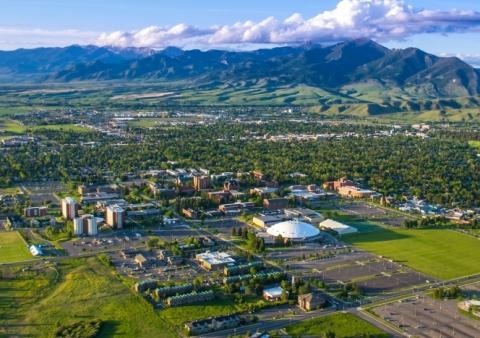The Department of Physics at Montana State University invites applications for a tenure-track position in atomic, condensed matter, or optical physics, with a research emphasis in the study of quantum materials or systems. Successful candidates will hold a Ph.D. in physics or related field and will have demonstrated the potential to develop and conduct a vigorous research program in areas related to the study, development, and application of quantum materials or systems. We seek candidates who are experimentalists, or theorists with strong ties to experimental research programs. The successful candidate will have a strong commitment to excellence in graduate and undergraduate teaching and research, and will complement current multidisciplinary research collaborations among the Physics, Engineering, Chemistry, and Biology Departments. The appointment is expected to be at the Assistant Professor level.
Montana State University values a broad array of experiences and perspectives and is committed to continually supporting, promoting and building an inclusive and culturally rich campus environment. We hope to attract applicants who can teach in a diverse university community and have demonstrated ability in helping students from diverse backgrounds succeed. In support of our strategic plan, which promotes access and respect, we enthusiastically encourage members of traditionally underrepresented groups to apply. MSU recognizes the importance of work-life integration and strives to be responsive to the needs of dual-career couples.
The new faculty member is expected to develop a competitive and internationally recognized grant-funded research program focused on the properties, development, or applications of materials or systems exhibiting or exploiting quantum effects or correlations. Examples include, but are not limited to, the study or application of quantum effects or correlations in atomic, magnetic, optical, photonic, or biological materials and systems, highly-complex materials, soft matter, and quantum information systems. The new faculty member is expected to teach physics at both the undergraduate and graduate level, mentor undergraduate and Ph.D. students in research projects, and diversify the department’s research and teaching portfolio.
